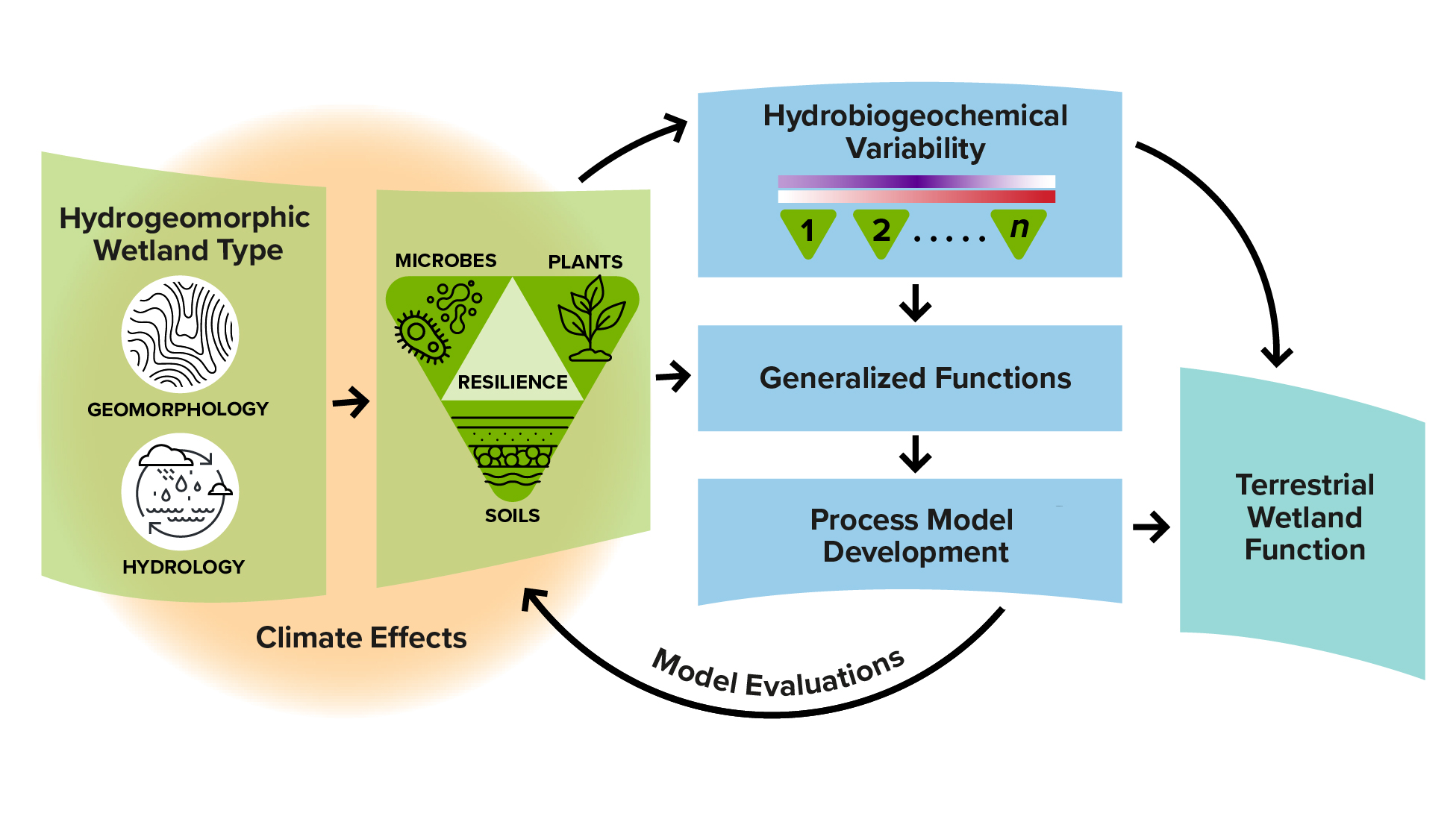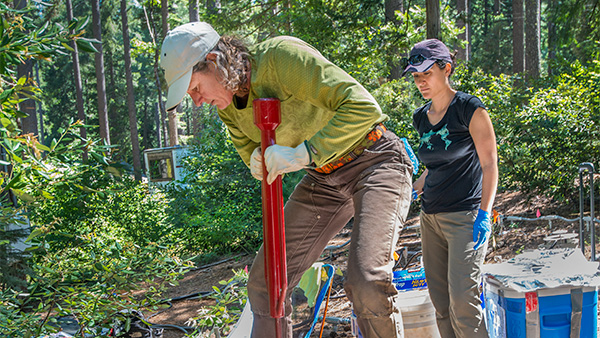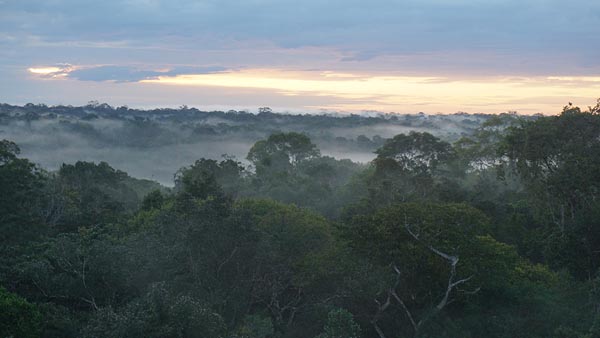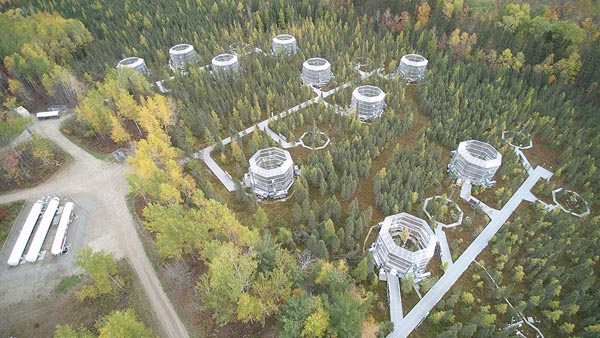Terrestrial Wetland Function and Resilience Scientific Focus Area
Wetlands
are expected to release a lot of
methane
and other greenhouse gases due to
climate change
impacts like rising temperatures and changing rainfall patterns. The
Terrestrial
Wetland Function and Resilience Science Focus Area aims to understand how climate affects wetland ecosystems through experiments, observations, and modeling. Our goals are to see how soil properties, plant and microbial communities, and changing conditions impact wetland functions and greenhouse gas emissions, and to find common patterns in these emissions across different wetland types to improve
Earth System models.
The project is divided into three research themes: studying small-scale mechanisms like
redox
reactions and microbial activity, large-scale
ecosystem
processes involving plant-soil-microbial interactions, and creating new ways to model wetland functions. Each theme focuses on things like microbial activity, plant-soil interactions, and how to model wetland variability and resilience in a changing climate.
| Keywords | biogeochemistry, carbon dynamics, ecological process, Ecosystem function, methane, reactive transport model |
|---|---|
| TYPE | Scientific Focus Area |

The SFA utilizes the hydrogeomorphic wetland classification, biogeochemistry, and modeling to understand terrestrial wetlands. (Image credit: Wetland Function SFA Team and Argonne’s Creative Services)
Categories
Other research you might be interested in
















